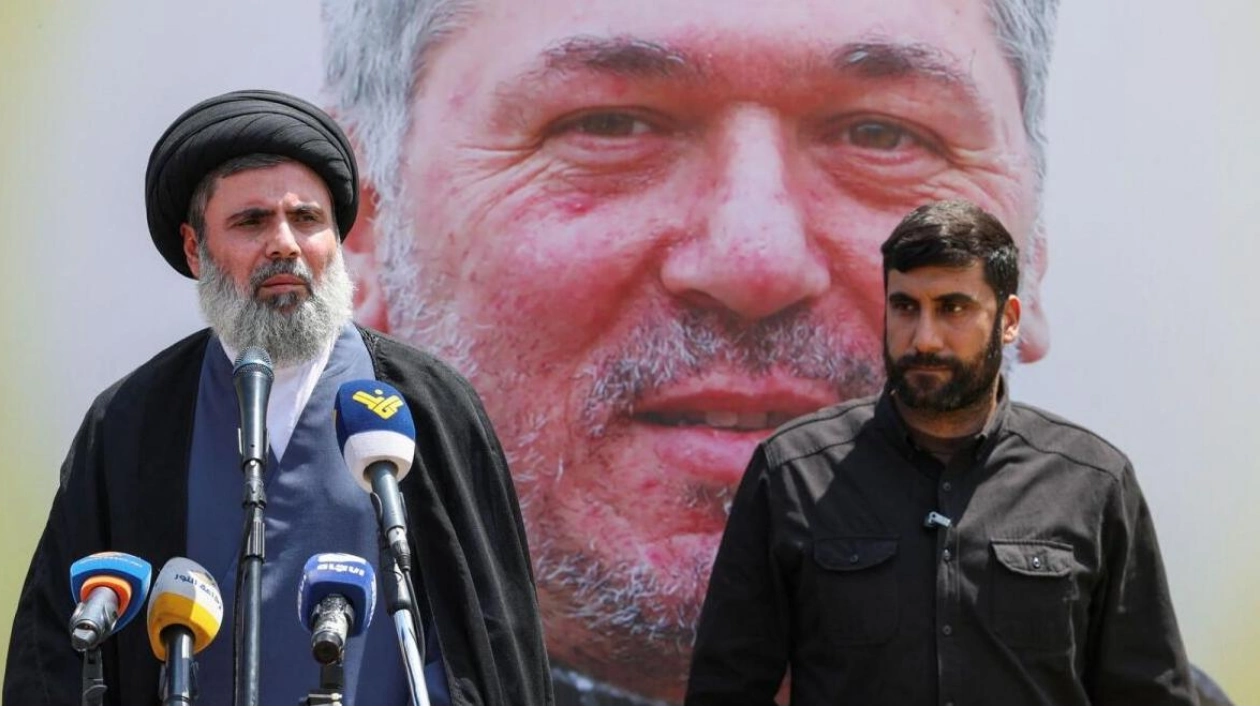Hashem Safieddine, a potential successor to the late Hassan Nasrallah, stands out as one of Hezbollah's most influential figures, deeply rooted in both religious and familial connections to Iran. Safieddine shares a striking resemblance with his charismatic cousin Nasrallah but is several years younger, currently in his late 50s or early 60s. A source close to Hezbollah, who requested anonymity due to lack of authorization to speak to the media, indicated that the grey-bearded, bespectacled Safieddine is the "most probable" candidate for the party's leadership position.
Both the United States and Saudi Arabia designated Safieddine, a member of Hezbollah's powerful Shura Council, as a "terrorist" in 2017. The US Treasury identified him as a "senior leader" within Hezbollah and a "key member" of its executive body. Although Hezbollah's deputy chief, Naim Qassem, would automatically assume leadership upon Nasrallah's death, the Shura Council is required to convene and elect a new secretary-general.
Safieddine's strong ties with Iran are evident from his religious studies in the holy city of Qom. His son's marriage to the daughter of General Qasem Soleimani, the slain commander of Iran's Revolutionary Guards' foreign operations, further underscores these connections. Unlike Nasrallah, who lived in hiding for years, Safieddine has been openly participating in recent political and religious events. While typically maintaining a calm demeanor, he has escalated his fiery rhetoric during the funerals of Hezbollah fighters killed in border clashes with Israel.
Nasrallah had stated that his forces were supporting Palestinian group Hamas in their conflict with Israel in Gaza. Amal Saad, a Lebanese researcher on Hezbollah based at Cardiff University, noted that for years, Safieddine has been considered "the most likely successor" to Nasrallah. "The next leader must be a member of the Shura Council, a select group, and must be a religious figure," she explained. Safieddine, according to Saad, "holds significant authority... making him the strongest contender."
Hezbollah, established under the initiative of Iran's Revolutionary Guards, earned its title as "the Resistance" by battling Israeli troops who occupied southern Lebanon until 2000. The movement was founded during the Lebanese civil war following Israel's siege of Beirut in 1982. In a July speech in Beirut's southern suburbs, Safieddine alluded to Hezbollah's perspective on leadership succession, stating, "In our resistance... when any leader is martyred, another steps up, carrying the flag with renewed, firm determination."






